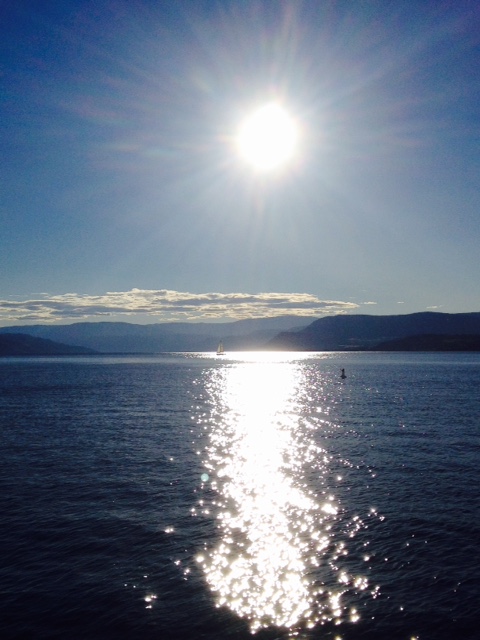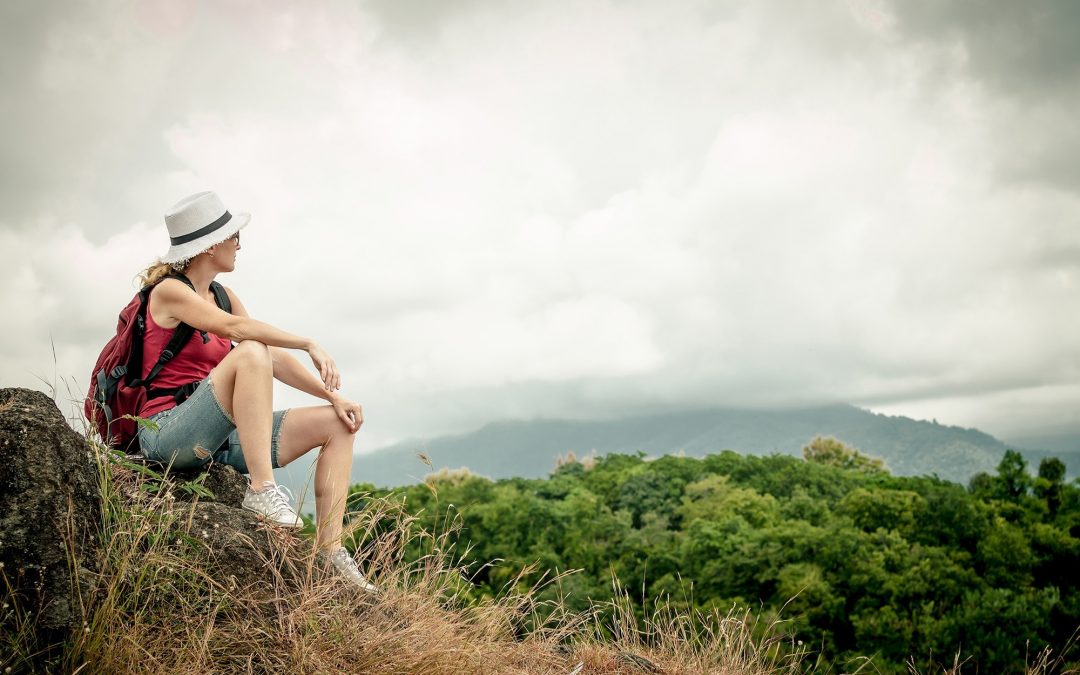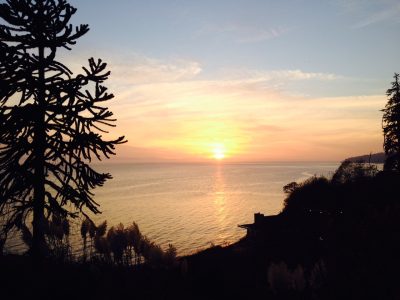
by pam | Mar 28, 2017 | Benefits of being in nature, Body-centered coaching, High Achieving Women, Self-Care, Stress Management
Oh, how I love spring! Here on the west coast, the daffodils and crocus have been out for several weeks, and the cherry blossoms and rhododendrons are starting to show their beauty. Many of us in spring get “spring fever” or a burst of energy; particularly if we’ve endured a long, cold winter. This time of year, I have to remind myself that I’m not 25 anymore and avoid taking on too many new obligations and activities even though I feel so alive! Perhaps you relate. Do you often take on alot of activities and obligations, and say “yes” because you’ve been asked and you think you should? I’ve been there and know what it feels like to lose your energy and not feel like doing much of anything. So how can you prevent yourself from taking on too much and then crashing?
Here are a few tips:
- Spend time in nature several times a week or more. Go for a walk, a hike, visit a garden, use all of your senses to take in the natural beauty. Bathe in forests. The Japanese have done longitudinal research to show that when we walk in forests, it reduces our heartrate, reduces our blood pressure and increases the number of natural killer cells our body produces (strengthens our immune system).
- Be aware of your energy and the people who “give” and “take” energy from you. Get clear on the people in your life who energize you and those who tend to sap your energy. Spend most of your time with those who energize you.
- Set healthy boundaries. Write a list of the things you enjoy doing. When people ask you to chair a committee or serve on the Executive of a group, be clear that this is what you enjoy doing rather than what you feel you SHOULD do. Living life following the “shoulds” is energy-draining and doesn’t bring out our “best sides”. For more strategies visit http://creativelivingcommunity.com/are-you-giving-too-much-2/
- Practice saying “no”. You may have been raised in a family where children and women were expected to do what they were asked and experienced the repercussions of NOT following the rules. … Start small. It’s like a muscle; the more you say “no”, the easier it becomes.
- Listen to and Trust in Your Body’s Wisdom. Our bodies always know the truth. There are a number of decision-making tools that enable us to get “out of our heads” and our logical left-brains, and tap into our bodies. Muscle testing is one way to determine whether we should say “yes” or “no”. One way to do this is to stand up straight, feel like you have a plumb line going from the top of your head to the tips of your toes. Then ask yourself the following: Is my name …? And state your real name. Your body should sway forward meaning “yes”. Then say to yourself Is my name John Doe? If that is not your name, your body should sway backwards. Now you have a baseline. Now ask yourself other questions such as Should I accept the position as President of this Club/organization?. When your body moves backwards it indicates “no”, forwards “yes”, and if it doesn’t move ask again. It may be that this decision won’t have strong impact on you either way. For additional examples see http://creativelivingcommunity.com/how-do-you-make-decisions/ .
I’d love to hear from you and invite you to try any or all of the strategies above and notice how they work for you.
Please share below strategies that you’ve found helpful in preventing you from taking on too much and then crashing.
Here’s to your health, happiness, fulfillment and inner peace!

by pam | Dec 6, 2016 | Benefits of being in nature, Conscious Living, Creative Living, Self-Care, Stress Management
The holidays are a time of joy, laughter, connecting with family and friends, and celebration. They also may be stressful on our bodies, minds and “pocket books”. With our already busy lives; extra baking, shopping, gift-wrapping, and entertaining can make us feel like there aren’t enough hours in the day.
Here are a few tips to help you to stay healthy, happy and mindful during the holidays and beyond.
- Take time for you – Holidays are a time to give to others, and they are also a time to give to yourself. Schedule time in your day for that yoga class, to go to the gym, for that bubble bath. Rather than jumping out of bed each morning and “hitting the ground running”, do a full body stretch; close your eyes and scan your body from head to toe noticing any areas of tightness or discomfort. Breathe into those areas and release that tension or discomfort.
- Spend time in nature at least 3 times a week (for 15 to 30 minutes or more). Being in nature is SOoo therapeutic. Focusing on the beauty that surrounds you takes your busy mind off that never-ending “to-do” list. Did you know that the Japanese have done longitudinal studies that show when we spend time in forests (they call it forest bathing or forest therapy) it reduces our heart rate, reduces our blood pressure and increases the number of natural killer cells our body produces; which means it strengthens our immune system. During stressful times it is particularly important to keep our immune systems strong so we don’t end up with that flu or cold after our guests leave!
- Celebrate YOU! At the end of each day identify at least one thing you want to celebrate about yourself for that day. It could be something you accomplished or how you responded in a stressful situation. When you constantly give to others without nourishing and celebrating yourself, you will become depleted and may also become resentful and/ or ill.
I’d love to hear your strategies for staying happy, healthy and mindful during the holidays. Please share them below. Feel free to pass this on to others you care about.
[1] Here is a useful resource on mindful eating: http://thecenterformindfuleating.org/

by pam | Aug 9, 2016 | Benefits of being in nature, Creative Living, Self-Care, Stress Management
According to the University of Minnesota’s Center for Spirituality and Healing “Research reveals that environments can increase or reduce our stress, which in turn impacts our bodies. What you are seeing, hearing, experiencing at any moment is changing not only your mood, but how your nervous, endocrine, and immune systems are working.”
Have you ever noticed that when you’re in nature your cares and worries melt away? You feel in the present moment. When I’m in nature I feel lighter and reconnect with childlike wonder at the beauty that surrounds me. Stress melts away and I feel light, carefree, and playful. When I’m in, on or by water I feel energized.
Nature has a number of therapeutic benefits. Did you know that:
- Children who grow up in big cities with little or no interaction with nature often suffer from “Nature-Deficit Disorder” which is characterized by anxiety, depression and attention-deficit problems. Research by Richard Louv and others show that regular connection with nature results in “everything from a positive effect on the attention span to stress reduction to creativity, cognitive development, and (a) sense of wonder and connection to the earth”.[1]
- The Japanese have done longitudinal research on the benefits of walking in forests. They have found that walking in forests strengthens your immune system, reduces your heart rate and reduces your blood pressure. Based on these findings, they have institutionalized what they call “forest bathing” or “forest therapy” and have created a number of centers across Japan where people can go and walk in forests.
- Spending regular time in nature can boost mental acuity, promote health and wellness, “build smarter and more sustainable businesses, communities, and economies; and ultimately strengthen human bonds.” [2]
So how can you spend more time in nature?
- Start walking or cycling to work if that is a possibility
- Go for walks at lunch in park-like environments
- Take short breaks when you’re feeling stressed at work and walk in nearby gardens or parks
- Plan family outings or time with friends hiking, kayaking, camping, walking …
- Have picnics with friends or family. You can be spontaneous and email or call some friends and say “we’re having a picnic on the beach tonight. It’s potluck. We’d love to have you join us. Bring what you would like to share.”
And notice how you feel before, during and after spending time in nature.
I’d love to hear from you strategies you use to spend more time in nature, and the effects you experience when you do so. I welcome your comments below. Feel free to share with others who you think may benefit.
[1] http://richardlouv.com/
[2] The Nature Principle – http://richardlouv.com/books/nature-principle/

by pam | May 17, 2016 | Beliefs & Values, Benefits of being in nature, Coping with Change, Creative Living, Proven strategies
Two months ago, I felt like my life was turned upside down. My partner, Alan, was headhunted and offered a position in another city. When he received the “hard” offer, they wanted him to start in 2 weeks! I’ve moved and gone through many changes in my life; however, this particular one that came “out of nowhere” really shook my foundations. I felt discombobulated for a couple of weeks. Alan and I had moved to the beautiful Okanagan Valley almost 8 years ago for lifestyle, and we thought we’d be here forever. Now, that might not be the case.
How many times have you envisioned that you were “settled”; that no other changes were going to happen in your life? I coach clients how to deal with life changes with “ease and grace”, and here I was going through one and experiencing a fair bit of turmoil!
So what was the silver lining in this change?
1) It made me reflect on what is most important to me in life. I realize and have known for some time that relationships and connection are most important. Being in nature and close to water also help ground me. I appreciate the beauty in nature.
2) It created an opportunity for me to go through my material possessions and decide which ones to keep, sell, discard or give away. After sorting through many of my clothes last weekend [and I have quite a collection ☺], as well as courses I’ve designed and reports I’ve written, I felt lighter and reconnected with my belief that “stuff” isn’t what is most important to me. Rather it is the people and special relationships in my life.
3) It opened me up to new adventures and possibilities.
What helped me regain my balance and get clear on what is most important?
1) Spending time in nature. Going for regular walks and taking the time to reflect and “be” rather than “do”.
2) Meditating daily and asking for guidance.
3) Sharing the news with family and close friends and realizing I will stay connected to them regardless of where I live.
4) Viewing the potential move as a new adventure; an opportunity to make new friends and be open to new possibilities.
5) Communicating openly with Alan and envisioning what is important to us in a place to live and during this time of transition. Sharing what we would like in our “new” life together.
How have you regained balance in your life when a change “caught you off guard”? Please share your thoughts and comments below. Feel free to share this post with others.

by pam | Oct 29, 2015 | Benefits of being in nature, Conscious Living, Creative Living, High Achieving Women, Inner Peace, Powerful practices, Stress Management, Work/Life Balance

I recently returned from a 3-day retreat where there was no cell service and no internet. What an unusual and blissful experience!
When my friend who I was driving with said there was no cell service at the retreat location, I initially felt some relief and then quickly thought of whom I should text to alert them.
When we arrived at the “spot”, a rustic building by the ocean, I started to relax and drink in the beauty of our surroundings. When I checked into my room, which was small, yet comfortable, I was intrigued by the monkey tree outside my window and felt blessed to have a room with a view of the ocean. For me, being by, in or on the water is where I feel most at home. At a Vision Quest a number of years ago, an aboriginal elder dreamt in my medicine name, which is “Laughing Otter Heart”. Initially I thought, that’s not as reverent as my friend’s name “Soaring Dawn Eagle”, yet it so connects me to the essence of who I am; to water, being in nature and my playful side. Now I smile when I think of it.
Within a short time of being at the retreat center, I felt all my cares melt away; my shoulders lightened, my mind quieted and I connected to my “being” side, (as I am often “doing”). I so enjoyed the three days of interacting with the other amazing women, facilitating my portion of the workshop and basking in the joy of being “unplugged” and in nature.
Did you know that the Japanese have done longitudinal research on the benefits of walking in forests? They have found that walking in forests strengthens your immune system, reduces your heart rate and your blood pressure. Based on these findings, they have institutionalized what they call “forest bathing” or “forest therapy” and have created a number of centers across Japan where people can go and walk in forests. How powerful is that!
With such busy lives and the associated stresses, regularly spending time in nature, and unplugging from technology are simple yet powerful practices that have amazingly positive benefits on our bodies, our minds and our relationships.
When was the last time you unplugged and spent time in nature? I welcome your thoughts and experiences below and invite you to share the post with others.





